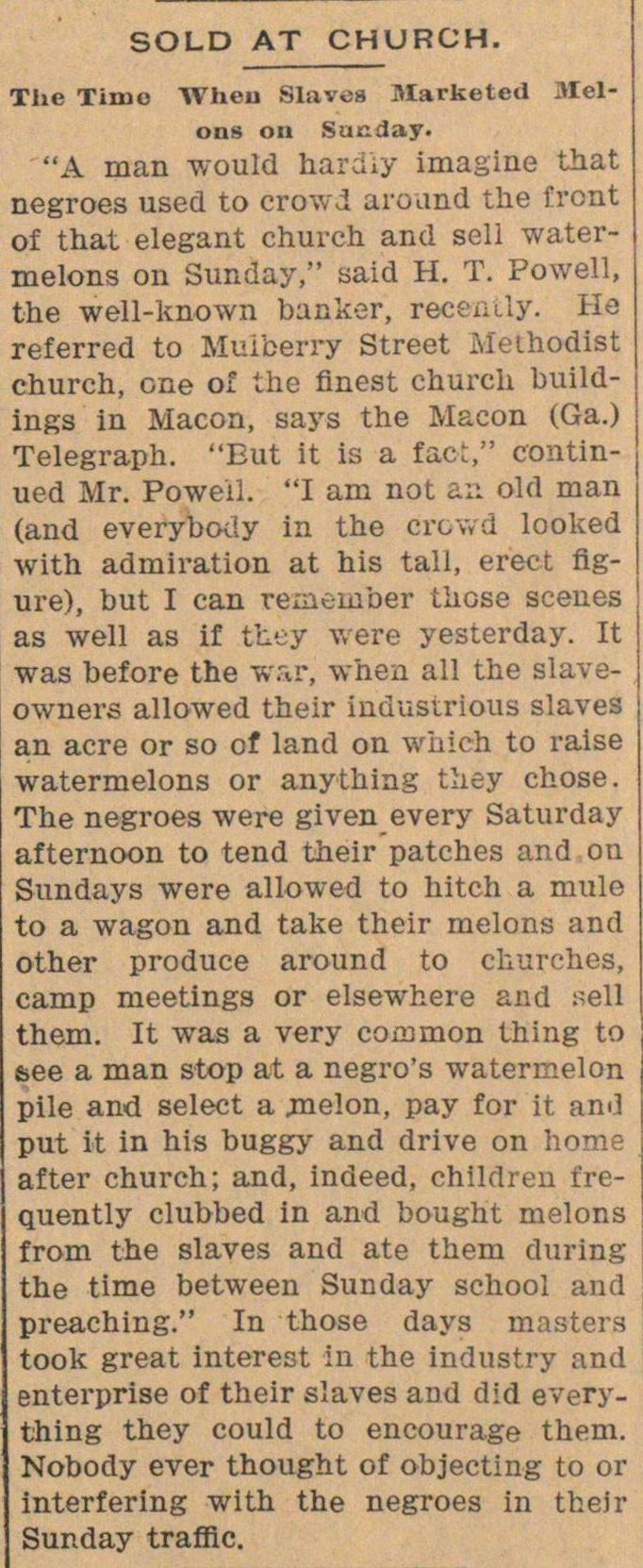Sold At Church

"A man would hardiy imagine that negroes used to crowi around the front of that elegant church and seli watermelons on Sunday," said H. T. Powell, the well-known bunker, recemly. Ha referred to Muiberry Street Methodist church, one oí the flnest church buildings in Macón, says the Macón (Ga.) Telegraph. "Eut it is a fací," continued Mr. Poweil. "I am not a:-, oíd man (and everybody in the crcwú looked with admiration at his tall, erect figure), but I can reiaeinber those scènes ! as well as if ttey were yesterday. It was before the w&r, when all the slaveowners allowed their indusirious slaves an acre or so of land on which to raise watermelons or anything they chose. The negroes were given every Saturday aíternoon to tend their patches and on Sundays were allowed to hitch a mulé to a wagon and take their melons and other produce around to churches, camp meetings or elsewhere aud sell them. It was a very common thing to eee a man stop at a negro's watermelon pile and select a .melón, pay for it añil put it in his buggy and drive on home after church; and, indeed, children frequently clubbed in and bought melons from the slaves and ate them during the time between Sunday school and preaehing." In those days masters took great interest in the industry and enterprise of their slaves and did everything they could to encourage them. Nobody ever thought of objecting to or interfering with the negroes in their Sunday trafile.
Article
Subjects
Old News
Ann Arbor Register